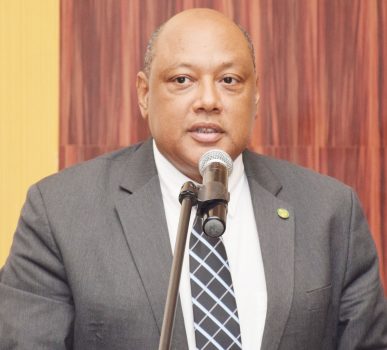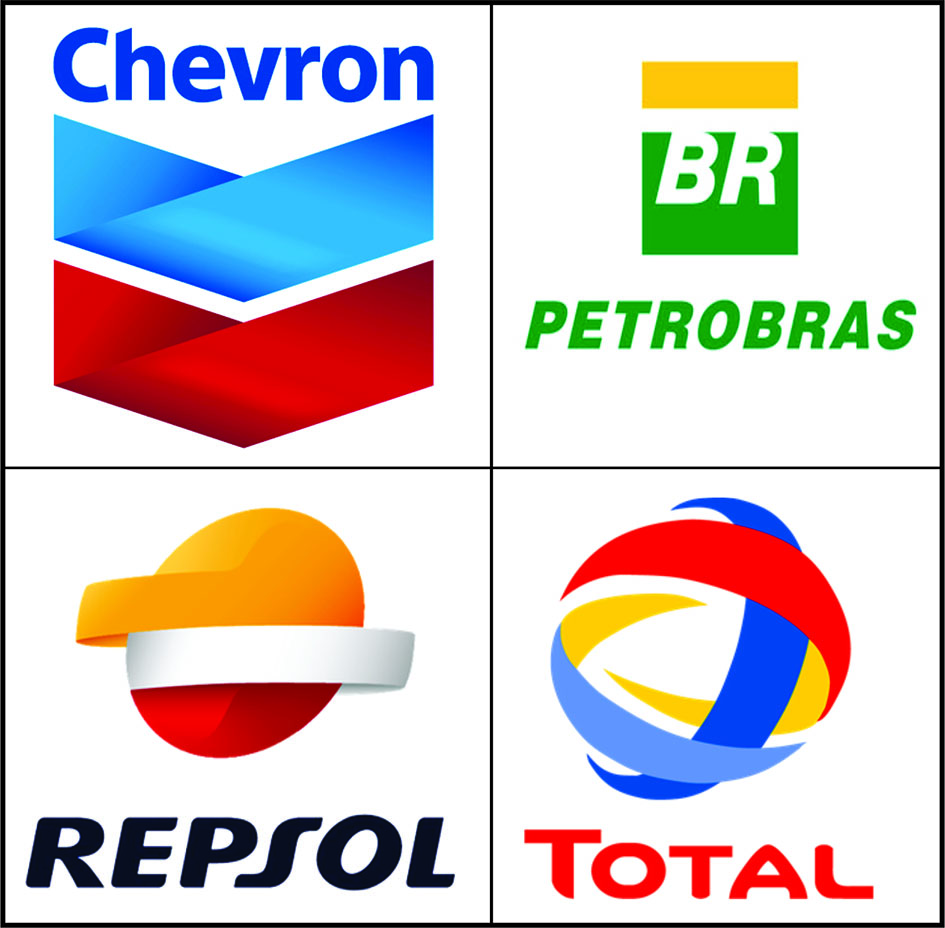US oil major Chevron, Brazil’s Petrobras and France’s Total are among nine companies seeking remaining oil blocks here and government is exploring both “direct engagements” and a “select bidding process” in assigning them.
Natural Resources Minister Raphael Trotman told the Sunday Stabroek that in disposing of the oil blocks, government will be concerned to ensure that the interest of Guyana remains the paramount consideration over monetary benefits offered.
“Ultimately, government will be looking to secure maximum benefits that are both strategic and economic as we develop the natural resources. Con-tracts and their negotiations, therefore, are not to be seen only through pure commercial lens, but also what provides Guyana a good measure of security from threats and impending challenges,” he said.

With the government being pilloried over what has been seen as a poor deal in 2016 with ExxonMobil, there will be pressure for expert negotiators to be hired to conclude future pacts. The type of agreement could also see significant change from the current Produc-tion Sharing Agreement.
There is also the view that to limit the risk of corruption, there should be a public auction of the remaining blocks.
Trotman informed that among the other companies seeking remaining blocks are Spain’s Repsol and a company from India that he did not name. “We already have expressions of interest from about nine companies, so it’s a matter of working out the manner of engagement,” he said. This newspaper learnt that some of these companies may also operate as a consortium.
Trotman recently explained that an international firm would advise the Guyana Government on how to market the country’s remaining unassigned oil blocks but he noted in a subsequent interview with the Sunday Stabroek that both direct engagements and a select bidding pro-cess were being explored. “As for the manner of disposal, we will be seeking direct engagements with some state owned companies such as Petrobras and may favour a select bidding process in order to attract other international majors,” Trotman said.
Last year, he had explained that government was yet to decide how the remaining oil exploration blocks would be assigned but emphasised that “national interest” would be the determining factor.
His comments were made in light of a suggestion by government’s petroleum advisor Dr Jan Mangal, who argued that competitive bidding is the way to go to avoid the risk of corruption.
“We are committed to ensuring that whatever decision we take is guided by the vision as to what is best for the people of Guyana who are the owners of the national patrimony. Cabinet will consider this matter in the upcoming months,” Trotman said after being asked whether the remaining blocks would be auctioned.
While there are a few remaining oil blocks offshore Guyana, the much sought after areas have been all but taken up; save and except one small area,” Trotman said in response to questions posed.
Mangal, in a letter to this newspaper, had noted that most countries had abandoned the “open door” method of direct negotiation with interested parties.
Following the discoveries made by ExxonMobil, he added, Guyana has been “de-risked” and is now in a position to use competitive bidding for the award of leases, which ensures that it leverages market forces to maximise its share.
He further stated that the risk of “government friends and family illegally obtaining leases will be significantly reduced if an independently managed and well audited competitive bidding process is used.”
‘Not yet de-risked’
In the interview with the Sunday Stabroek, Trotman noted that discovering oil doesn’t make a country “de-risked.” “Firstly, we are not completely “de-risked” simply by the discovery. When we have started and sustained production, then the Guyana basin will be considered “de-risked.” This is because of the other attendant risks that are associated with Guyana, not least among which is Venezuela, which presents a clear and present challenge,” he said.
His position seems to have mirrored that of energy expert Dr. Vincent Adams, who had told this newspaper that before one could call the basin de-risked, myriad factors, both geological and the country’s sovereignty, among others, had to be taken into account.
With Guyana over the years bemoaning Venezuela’s aggression and its impact on investment here, observers say that signing on with certain companies is more beneficial to Guyana’s sovereign security as it would form strategic allegiances through business.
Since he took office in 2015, President David Granger has been highlighting Caracas’ continuing efforts to hinder the development of the Essequibo.
“Venezuela’s claims are not only illegal, they are injurious to the economic development of Guyana. Venezuela, therefore, must desist from hindering our economic development in an obtrusive and obstructive manner that is tantamount to interference in our internal affairs. It must desist from threatening investors who have a legitimate right to pursue their activities in our territory,” Granger had told the National Assembly in a speech during 2015.
Focusing on the border issues, the President had also touched for the first time on indications of Suriname’s renewed claims to the New River Triangle in south-eastern Guyana.
On the remaining blocks, Guyana Geology and Mines Com-mission (GGMC) actinghead Newell Dennison has explained that from the rough determinations, approximately 9,500 sq. km are available within the coastal environment, 24,000 sq. km within the environment of the continental shelf, 10,000 sq. km within the deep water environment and 9,000 sq. km within the ultra-deep water environment.
The country has two demarcated basins that have hydrocarbon potential–the Stabroek Basin, which is partly on shore and offshore Guyana, and the Takutu Basin, which is in the Rupununi area.
However, most interest has been on the offshore area and particularly in the deep sea following the major discoveries there by ExxonMobil.
According to a GGMC map that was updated in February last year, there are not many areas left that have not been contracted out to companies. The companies that have blocks in the deep water area, offshore Guyana, are: Repsol and Tullow Oil (the Kanuku Block); Tullow (the Orinduik Block); Anadarko (the Roraima Block); Ratio Oil (the Kaieteur Block); Esso, CNOOC Nexen and Hess (the Stabroek Block); Esso, Mid Atlantic and JHI (the Canje Block; CGX (the Demerara and Corentyne blocks); ON Energy; and Nabi.
In 2000, Suriname used force to evict a CGX rig from Guyana’s territorial waters. However, Guyana did not respond with force but sought the route of international law and was vindicated.
In 2013, Anadarko had been engaged in extensive work prior to drilling in Guyana’s western waters when a research vessel doing studies on its behalf was seized by the Venezuelan navy. That move saw all works halted by the company but it returned in 2015, following ExxonMobil’s big oil find in the Stabroek Block, and restated its interest in drilling for oil offshore.










